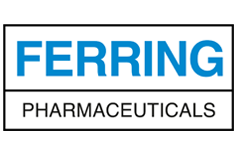RBX2660 Shows Promise as a C Difficile Treatment
The treatment would represent the first microbiota-based live biotherapeutic to show efficacy in the first recurrence of CDI.

In data presented at the 2021 Digestive Disease Week (DDW) Virtual Meeting, RBX2660 has shown promise as the first microbiota-based live biotherapeutic to show efficacy in the first recurrence of Clostridioides difficile infections (CDI).
Ferring Pharmaceuticals and Rebiotix released the results from a phase 3 multicenter, randomized, double-blinded, placebo-controlled clinical trial dubbed PUNCH CD3 testing the investigational microbiota-based live biotherapeutic.
The Treatment
The treatment has shown superior efficacy and a consistent safety profile, while reducing the recurrence of CDI in comparison with placebo, meeting the predesigned primary endpoint.
Eligible participants included adults who had at least one recurrence after a primary episode of CDI. Each patient was followed up with for 8 weeks for efficacy and 6 months for safety.
RBX2660 showed an efficacy of 70.4% at 8 weeks post-treatment, compared to a 58.1% efficacy for the placebo.
The treatment resulted in a 98.6% posterior probability of superiority, surpassing the 97.5% minimum threshold, while providing a relative reduction of CDI recurrence of 29.4% compared to placebo.
Safety
The safety profile was also similar to placebo.
The majority of treatment emergent adverse events for both RBX2660 and placebo were mild to moderate.
The clinical trial program testing RBX2660 represents the largest clinical program ever conducted for microbiome-based therapeutics. Overall, the program has consisted of 6 clinical trials with more than 1000 patients enrolled over the course of 10 years.
The Future
“C. difficile infection is a global public health threat that requires immediate action to halt the unrelenting cycle of recurrence ,” Paul Feuerstadt, MD, FACG, AGAF, PACT Gastroenterology, Hamden, Conn., Assistant Clinical Professor of Medicine, Yale University School of Medicine, New Haven, Conn., and RBX2660 clinical trial investigator, said in a statement.
“While necessary to treat initial infection, antibiotics are also a predominant risk factor for recurrence because they can disrupt the gut microbiome, leaving the current treatment paradigm for recurrent infection incomplete,” he added. “These Phase 3 RBX2660 results, as part of the overall clinical development program, show consistent efficacy as early as a first recurrence of C. difficile infection by delivering a broad consortium of live microbes to the area of active infection.”
RBX2660 is being studied to deliver a broad consortium of diverse microbes to the gut to reduce recurrent C. difficile infection. The treatment has been granted Fast Track, Orphan, and Breakthrough Therapy designations from the US Food and Drug Administration (FDA).